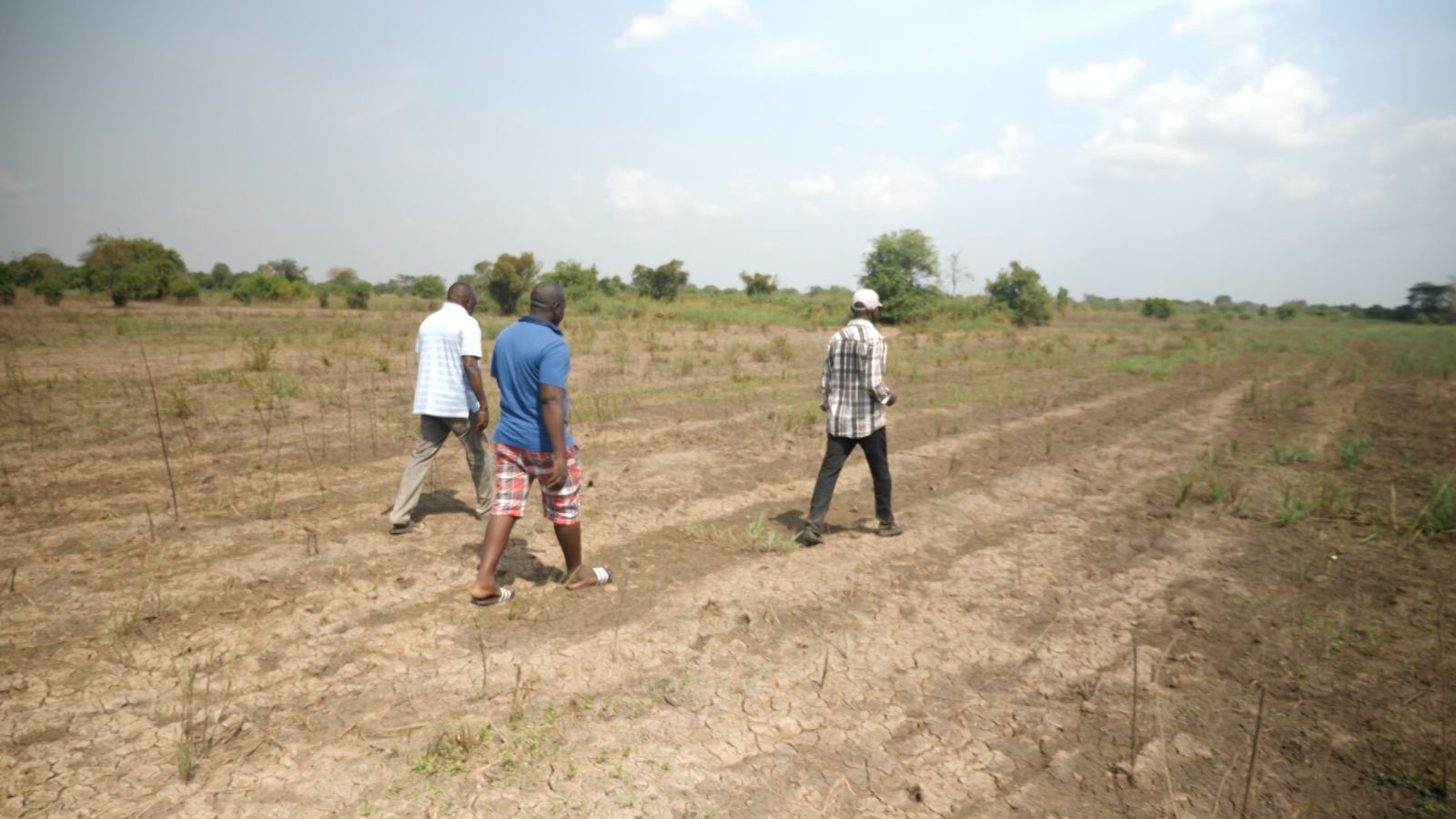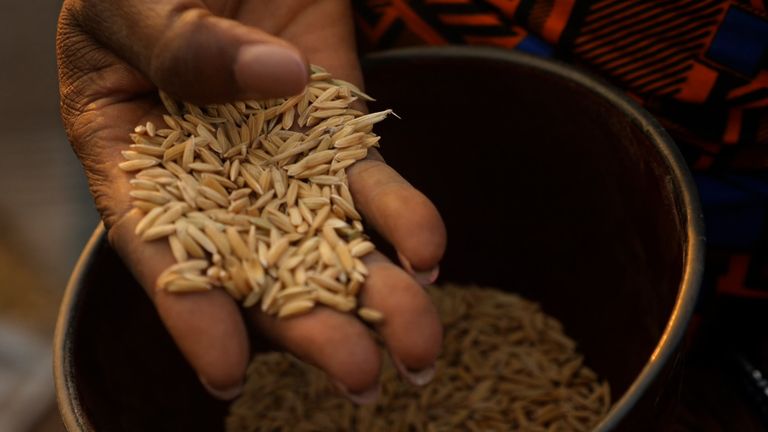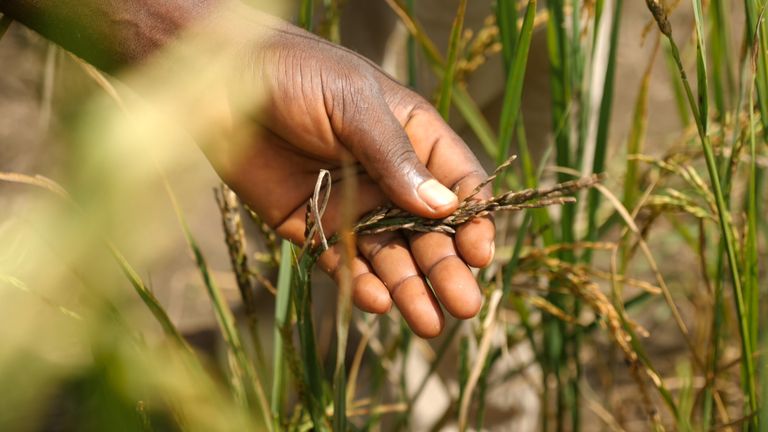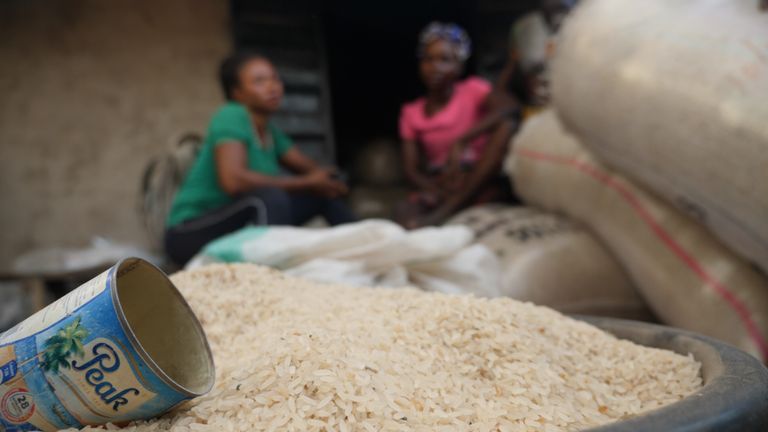Nigeria was subjected to the worst flooding in a decade in October, which left more than 600 people dead and about a million displaced.
Along with the hundreds of thousands of houses destroyed, huge swathes of the country’s farmland were devastated by the surging waters. Sky News’s Yousra Elbagir visited the country to see the struggles faced in the aftermath of the deluge.
The sun beats down on a field in Nigeria’s Benue state.
Three young children are hunched over mounds of decaying rice husks. Just a few feet away, their mother runs grain through her hands with a baby on her back. The family rifle through rot for any remains of rice they can mill at home for food after their farms were washed away.
This is the reality of life in the country’s food basket. Unprecedented rainfall caused devastating flooding that killed least six hundred people nationwide and left more than a million homeless. It is the worst flooding Nigeria has seen in over a decade.
The country is accustomed to seasonal flooding, but this year has been markedly worse. Now the flooding is over, Nigerians face the fact that it was not just lives and homes that were lost, but also swathes of the nation’s best farmland.
Today, the Benue River has receded, but the damage is done. Nearly 20 million Nigerians are now facing food insecurity.
“I was producing slightly above a tonne of rice per day. The coming of the floods so affected us – even one to two bags we cannot even mill a day now,” says Bridget Owoloyi, who has been processing rice since 2015.
The Benue State Emergency Management Agency says it will take at least another two months for agricultural communities to be compensated.
State services have long been described as overwhelmed since clashes between farmers and herders started four years ago.
At least 1.5 million people have been displaced by the conflict and many are facing even more loss in the wake of the floods.
“This farm is on lease. My ancestral home is a no-go area because of the herdsmen’s attacks on us,” says Jila Barnabas.
Now, his leased farm is desolate.
“Thousands of hectares of rice are washed away,” he adds.
The farmer’s despair – a sign of the hunger to come.







